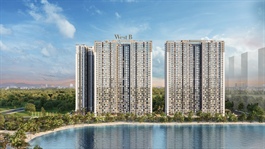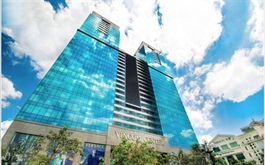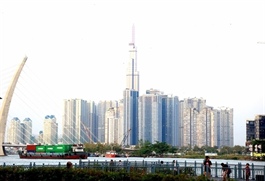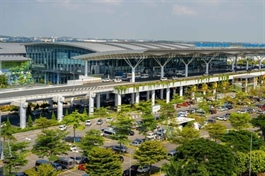Foreign investors flock to Vietnam's real estate market
Foreign investors flock to Vietnam's real estate market
Vietnam's real estate sector has emerged as a highly desirable destination for international investors, ranking second only to the manufacturing and processing industry, with over 1,100 projects amounting to $66.4 billion of foreign investment.

Vietnam's real estate market is drawing international investors at a rapid pace, noted Nguyen Anh Tuan, deputy director of the Foreign Investment Agency (FIA) under the Ministry of Planning and Investment, at the recent seminar hosted by The Investor.
Vietnam's real estate sector stands as the second most attractive industry for foreign investment, trailing only behind the manufacturing and processing industry.
To date, the country has attracted over 37,500 projects, amounting to a total investment close to $450 billion. Of these, 1,100 projects were real estate investments, amounting to $66.4 billion, or 15 per cent of the total foreign investment.
International investors from 48 different countries and territories have poured money into Vietnam's property market, with leading investors hailing from Singapore, South Korea, the British Virgin Islands, and Japan. Out of the 45 provinces and cities that received foreign direct investment (FDI) in real estate, Ho Chi Minh City leads with a registered capital of over $16 billion, accounting for 24.7 per cent of total investment, followed by Hanoi, Binh Duong, and Ba Ria-Vung Tau.
Foreign firms investing in Vietnam's real estate sector are predominantly large-scale entities, noted Tuan, with projects ranging in diversity and quality.
Several FDI ventures have investments amounting to billions of USD, including projects such as the Ho Tram in Ba Ria-Vung Tau, the smart city in Hanoi, and the Nam Thang Long Urban Area in Hanoi, among others.
A range of factors is enticing foreign investors to Vietnam, including political stability, impressive economic growth, competitive manufacturing costs, a rich labour source, potential market opportunities, and a strategic geographic location that enables connections to large economies.
The country's extensive coastline offers prime locations for resort property development, coupled with an infrastructure system benefiting from robust investment.
However, Tuan cautioned that despite these advantages, foreign-invested real estate projects in Vietnam face issues of inefficiency.
Some large-scale land projects have suffered from sluggish implementation, while the complexity of administrative procedures concerning investment, construction, bidding, and land use often results in prolonged project execution. In particular, the legal system related to the real estate market is seen as not yet harmonious, clear, and adequately responsive to changes.
Nguyen Tuong Van, deputy minister of Construction, said that all these factors could potentially impact the future growth of Vietnam's real estate sector. To catch up with global trends and filter quality foreign investors in real estate, Vietnam needs to continue revising and refining its real estate market regulations.
The Ministry of Construction has been leading the drafting of amendments to the Housing Law and the Real Estate Business Law. Both projects were presented for comment during the 5th Session of the 15th National Assembly held from May 22 to June 23 this year. They are currently being fine-tuned, with approval expected at the 6th Session in November 2023.
Elsewhere, the Vietnam Real Estate Brokers Association recommended swift adjustment of foreign investment policies to keep pace with global economic fluctuations and changes in other countries' FDI strategies.
They emphasised creating a competitive, transparent investment environment, ensuring a ready supply of clean land, reviewing power planning, accelerating power projects, training quality human resources, and improving administrative procedures.
They also urged the government to promptly issue clear, detailed guidelines on the roles, responsibilities, and authority of those involved in checking, evaluating, and approving applications, to put an end to protracted administrative processing that costs businesses time and money.
Professor Nguyen Mai noted that foreign investors were wary of investing in countries where corruption is rampant, counterfeit goods are common, and intellectual property rights were not respected and enforced. Therefore, controlling these issues will open even more opportunities for Vietnam to draw foreign investors.





















